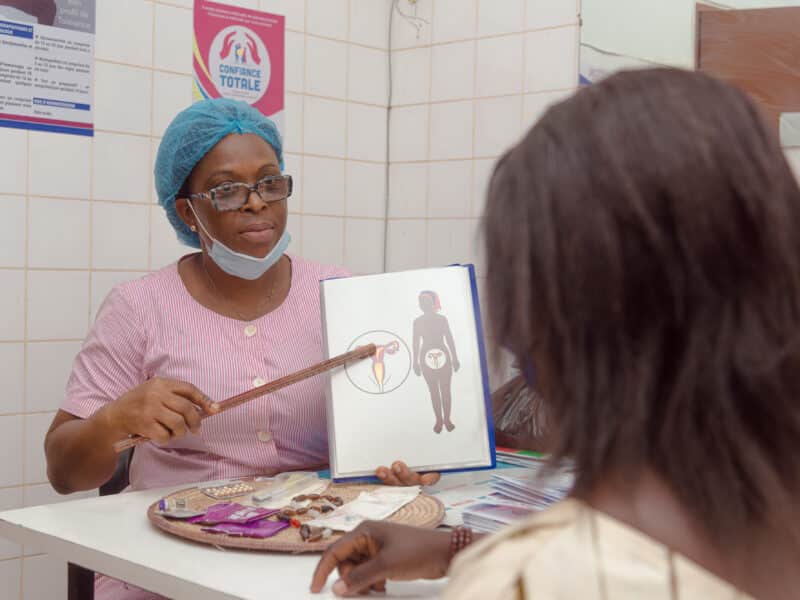In Hollywood, there are people like Tobias Deml, an Austria-born producer and filmmaker whose goal is to make emotionally engaging movies that spur people to make positive changes in their lives. Sure, he wants audiences to be entertained. But what if they could be entertained and moved to advocate for equal opportunity or social justice or environmental protection?
In Baltimore, the Johns Hopkins Center for Communication Programs has been running on a parallel track. For decades, in dozens of countries around the world, CCP has developed radio programs and web series and prime time television shows that inspire people to adopt healthy behaviors, be it using modern contraception or sleeping under a mosquito net or being tested and treated for HIV.
Now, Deml, CCP and others have joined forces to create what he calls a trade association for those who work in “social impact entertainment,” which goes by many names across several similar fields including “entertainment education” and “corporate social responsibility.”
The SIE (Social Impact Entertainment) Society aims to bring together those who work in various industries and organizations in order to “amplify voices, expand resources and opportunities, and involve the next generation of storytellers. We educate, connect and equip members and newcomers on what is SIE to begin with, how to implement it on your own projects, and how to find allies along the way while fostering diversity, inclusion, and change both in front of and behind the camera.”
“In the world I come from, it is entertainment first, impact second,” Deml says. “What we are interested in is changing the future of this industry and accelerating the development of one that is more focused on impact.”
And impact doesn’t mean forfeiting profits. There can be money in it, too. Deml points to the movie Avatar, the hugely successful 2009 film that was for many years the highest-grossing movie on record.
The movie wasn’t just a moving story well told. It also carried with it messages of the importance of protecting forests and indigenous civilizations. A perfect example, Deml says, of social impact entertainment.
CCP’s Executive Director Susan Krenn met Deml when he attended the 2018 International Social and Behavior Change Communication Summit in Nusa Dua, Indonesia. They both welcomed the idea of finding ways to bring together the rigor of the types of research CCP conducts with the creativity of Hollywood’s producers and directors to use the powerful tool of media for health advocacy and societal change.
“This is a tremendous opportunity to connect and learn from one another,” Krenn says. “Hollywood has a huge reach, not just in the United States but all over the world. With all of this influence, why not use it for good?”
SIE Society was born out of Cinema of Change, which Deml co-founded with Robert Rippberger. The pair then teamed up with the Producers Guild of America’s social impact entertainment task force to bring the society into existence. The SIE Society’s members include film festivals, universities, production houses and activists.
CCP has long worked with mainstream entertainers to get its messages out. In 1987, for example, Filipino singer Lea Salonga (who would later win a Tony for her work in “Miss Saigon”) and the popular Puerto Rican musical group Menudo (that included a young Ricky Martin) recorded two songs to promote sexual responsibility among young people in the Philippines as part of a CCP-led program.
Last year, CCP, as part of its Ujjiban project, produced a cooking competition show in Bangladesh in an effort to entertain audiences – and teach them about nutrition at the same time.





